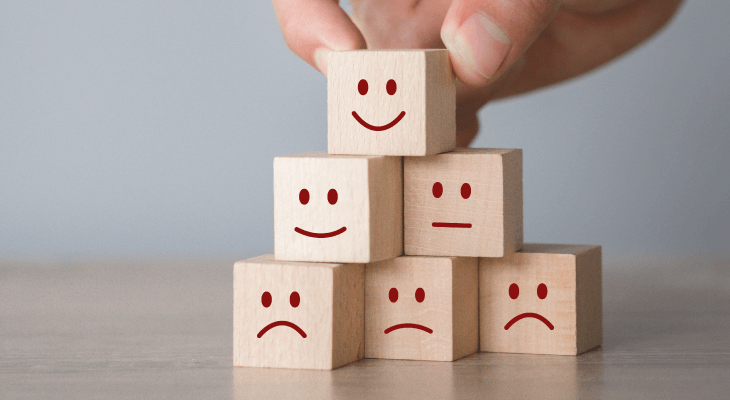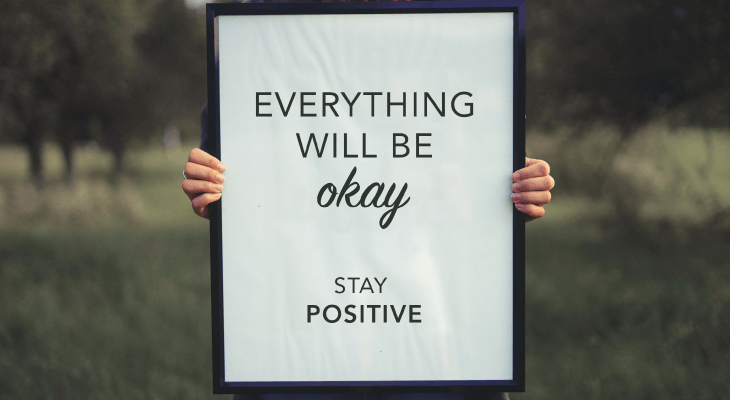Is Being Too Positive Harmful? 4 Signs of Toxic Positivity You Need To Be Aware Of
Sometimes, too much of a good thing can be bad. Here are some signs toxic positivity has taken over your life.
Updated 17 Nov 2021

Having a positive outlook on life is important so that you don’t get swept away by life’s worries and woes. Not only does it help with stress management, but it can also even improve your health by boosting your immune response and lowering the risk of death from heart disease.
But too much of a good thing can also be a bad thing. While going through rough times with a smile on your face is great, taking positive thinking too far can become toxic, eventually hurting you or the people around you.
What is toxic positivity?

Toxic positivity is the belief that people should always maintain a positive mindset no matter how stressful or difficult a situation is. It’s also the excessive tendency to only see the good side of things and rejecting painful and difficult emotions and experiences.
This inauthentic happiness can cause damage to personal and professional relationships. Not only will enforcing toxic positivity silence feelings, but it also invalidates grief and pain and forces people to pretend to be happy even when they’re struggling. This can ultimately lead to low self-esteem, anxiety and even depression.
While phrases such as “just stay positive” and “happiness is a choice” are often well-intentioned, it’s still important to recognise that they can be harmful. Here are some of the signs you’ve been placing toxic positivity on yourself and others.
#1. Hiding your emotions behind feel-good quotes

Feel-good quotes are called so because they can be reassuring when you need an instant burst of wisdom. However, they are only useful when you need a motivation boost, not when you’re grieving or going through a stressful life change.
Positive quotes such as “happiness is a choice” or “keep calm and carry on” don't always reflect real life. In fact, happiness is a feeling that comes from experiences that make us happy. When we meet situations that excite us, our brain produces endorphins and dopamine to make us feel good. Not everyone produces or releases these chemicals the same way. This is why being happy isn’t something that we can just tell ourselves to do.
Being inspired by feel-good quotes is okay but do so with caveats. If the quotes don't do you justice, consider talking it out to friends. Having someone provide you with reassuring words is better when they know what you’re going through.
#2. Shaming others who don’t have a positive attitude

There’s no denying that your mood can be affected when your friends are feeling down, especially when they vent to no end about how sucky things are. But that’s never a reason to show some “tough love” by shaming or scolding them for feeling the way they do.
For instance, telling your friends that they should “just get over it” because you did it isn’t the motivational talk you think it is. Not everyone copes the same way, nor do they have the same ability and privilege that can help them go through stressful situations easily. In fact, telling them that other people are having it worse only invalidates their emotions and makes them feel guilty for what they’re feeling.
The “positive vibes only” mantra can be particularly grating during times of personal distress. When people are coping with situations such as financial troubles, job loss, illness or the loss of a loved one, being told that they need to look on the bright side can seem downright cruel.
You don’t have to offer advice if you don’t know the right things to say. Sometimes, making sure your friend isn’t alone, practising active listening and offering a helping hand wherever possible is enough to make your friend feel better.
Apply for university with EduAdvisor
Secure scholarships and more when you apply to any of our 100+ partner universities.
Start now#3. Telling yourself to “just get over” painful emotions

Have you ever tried to overcome difficult situations by forcing yourself to be unaffected by them? Perhaps you’ve found yourself getting disappointed too many times so you’ve decided to build a wall to protect your feelings and stay positive.
While there’s nothing wrong in controlling how you feel, resorting to being stone cold and ignoring how you feel, whether it’s sadness, anger, frustration or grief, can actually lead to further physical and mental stress. Not to mention, there’s also a risk of developing unhealthy habits like being a workaholic or turning to alcohol and other risky behaviours as a distraction.
Instead, practise emotional regulation by acknowledging how you feel and find an understanding of why you’re feeling this way. This will give you clarity on how to navigate uncomfortable and distressing situations. In time, you’ll be able to manage your expectations, handle conflicts better and be above situations that hurt you.

#4. Feeling bad about being sad, upset or other negative emotions

Have you ever felt guilty about feeling sad or frustrated when things don't go your way? Perhaps you’ve received a bad grade on a subject you studied hard for or had your friends bail on plans that you had spent weeks planning.
There’s so much pressure for us to always be joyful and happy, even when things occur outside of our control. In order to distract ourselves from being sad, we choose to question our emotions and overcompensate to feel better. Whatever the reason is, there’s this nagging voice at the back of your mind that tells you that you’re being selfish if you get upset at things.
But if you’ve watched the movie Inside Out, you’d recognise that ignoring sadness and replacing it with positivity doesn’t really make things better. In fact, Sadness reminds Joy that sadness doesn’t exist to bring you down on purpose; instead, it's a sign that something is troubling you.
The reality is that all emotions serve a purpose — they provide insight into our inner and outer environments, allowing us to connect with others, avoid danger and recover from loss.
There’s nothing wrong with being positive, but engaging in toxic positivity can do more damage than good in the long run. Instead, it’s healthier to let yourself feel your full range of emotions, both the positive and the negative.






